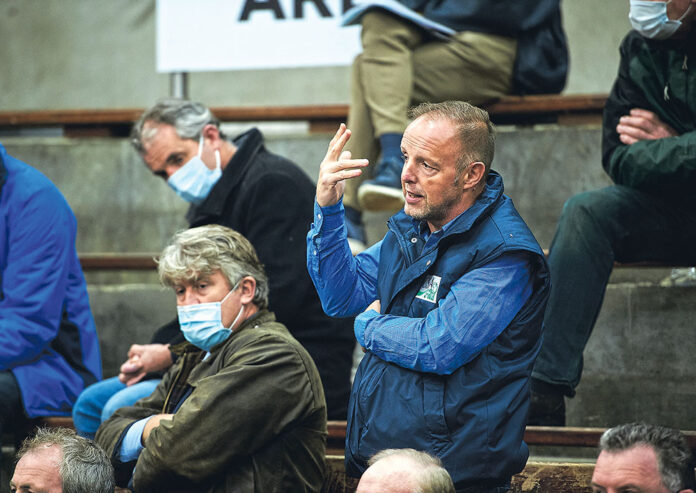ICSA chief says support for organic farming ‘excessive’ relative to other sectors
CLARE’S suckling enterprise, which generates an annual injection of an estimated €60 million into the local economy, is being short changed under the latest CAP Reform proposals, a local farm leader has claimed.
ICSA secretary, Eddie Punch has called on Clare’s Oireachtas members to address the significant underfunding of direct supports for Clare suckler, beef and sheep farmers under the government’s proposed package under the Common Agricultural Policy (CAP).
While Mr Punch supports organic farming, he believes the proposed funding of €256 million for this sector is “off the richter scale”.
In 2020, there were 66,232 calves registered as born to a suckler cow in Clare. This puts
Clare as the third highest county in Ireland for suckler cows behind Galway and just marginally behind Mayo.
ICSA secretary, Eddie Punch stressed the suckler enterprise is hugely important for sustaining rural towns and villages in Clare.
“Marts like Ennis, Sixmilebridge and Kilfenora are greatly influenced by the selling of top quality suckler cattle. Farmers from all over Ireland come to these marts to buy quality stock.
“The are significant parts of West Clare and the Burren where sucklers are the only realistic enterprise.
“There is great stock being produced on these farms, but they are not suitable for tillage, fattening cattle or dairying because the farms are fragmented or the land isn’t good enough.
“The key issue is that the government funding proposals are ridiculously skewed in favour of organic farming.
“ICSA supports more ambition for the organic sector but the level proposed by the government is off the charts”.
The government are proposing €256 million in funding for organics for a five-year period compared to €260 million for sucklers, €100 million for sheep and zero for beef finishers.
There are just 1,800 organic farmers in Ireland compared to 63,600 suckler farmers and 35,000 sheep farmers.
This translates into an annual average payment of €28,000 per organic farm and €817 per suckler farm.
Even if the government succeeds in its plan to increase the amount of organic farmers to 6,500 by 2027, which is unlikely, he stressed the proposed funding is grossly shortchanging the suckler sector.
He said there are some farms that are suitable for organic farming – one is a large top of the range land that can grow its own cereals and can easily reseed with red clover.
The other is on bad land as a subsidiary enterprise that is in no way commercial, or a micro farm that grows their own organic vegetables and rears organic cattle for a market or to supply restaurants.
He pointed out that last enterprise doesn’t lend itself to large scale expansion.
“If a farmer is supplying all the restaurants in Clare with organic carrots, that would be a suitable enterprise for that farm.
“If five more farmers want to do the same thing, the whole thing collapses for everyone because the market isn’t there.”
He claimed the main processor of organic beef haven’t invested any considerable expenditure to grow the organic market.
Mr Punch claimed there is an element of “beef is bad, unless its organic”. However, he pointed out that the beef finisher is a vital cog in the system.
“We need people to finish the sucklers but even without sucklers, who’s going to finish all the dairy calves. Without beef finishers, the entire dairy and suckler sectors are unsustainable.
“A few thousand organic farmers are not a substitute for the conventional beef finishing sector that handles the progeny of a dairy herd that’s already at 1.5 million cows, and a suckler herd of 880,000 cows.”
He recalled former EU Commissioner Ray McSharry introduced direct payments for the suckler cow premium, ewe premium, special beef, slaughter premium and arable aid, in lieu of price supports.
While the market isn’t returning a viable income for beef and sheep, Mr Punch claimed payments have drifted away from suckler, beef and sheep farmers.
Under the 85% convergence proposals, he warned even if a land owner has land that isn’t suitable for much agricultural activity, they will essentially get the same payment per hectare as someone with a suckler cow herd or beef finishing enterprise.
“The payments are being spread across every hectare in Ireland with no regard for whether a farmer has suckler cows or needs support for a particular enterprise.
“Costs are rising much more in a farm that is active rather than inactive. The cost of diesel and other inputs is rocketing. If a land owner doesn’t have many cows, he is not feeling the pain of these costs as much.”
by Dan Danaher


